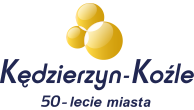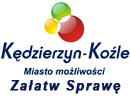Cele Projektu Rozwoju Lokalnego
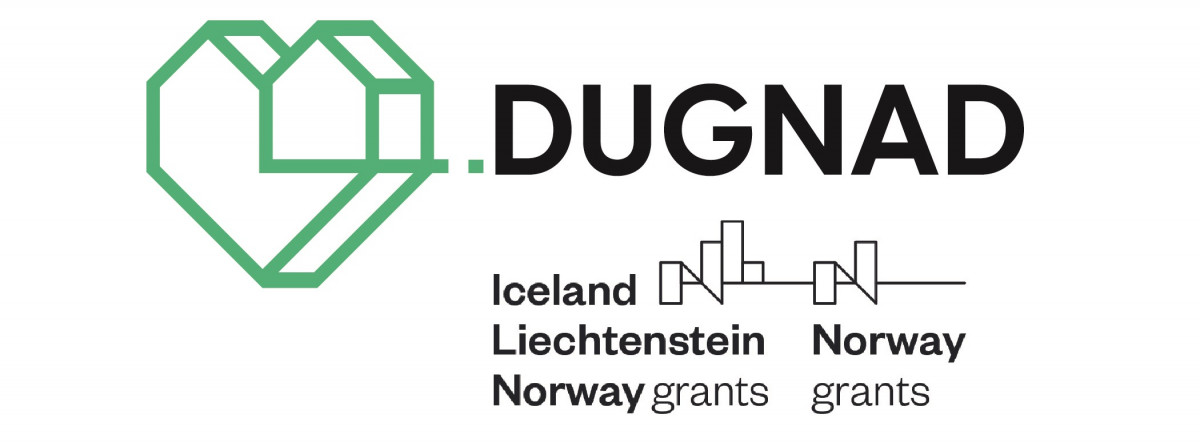
"Dugnad” w Kędzierzynie-Koźlu".
Integracja mieszkańców oraz odbudowa relacji sąsiedzkich jako podstawa rozwoju lokalnego.
[PL] Program Rozwój Lokalny
Miasta, szczególnie małe i średnie znajdujące się w gorszej sytuacji niż większe ośrodki, borykają się z szeregiem problemów natury środowiskowej, gospodarczej, społecznej czy instytucjonalnej. Potrzebne są kompleksowe i skoordynowane działania, żeby między innymi poprawić jakość powietrza, dostosować się do zmian klimatycznych, zatrzymać negatywne trendy depopulacyjne, odpowiedzieć na potrzeby starzejącego się społeczeństwa, stworzyć dobre warunki do rozwoju przedsiębiorczości czy wzmocnić wydajność lokalnej administracji. Mieszkańcy oczekują miast jako miejsc przyjaznych do życia a Program Rozwój lokalny, finansowany w ramach III edycji Funduszy norweskich i EOG na lata 2014 - 2021, wspiera samorządy w dążeniach do osiągnięcia tego celu.
Cel Programu: Wzmocnienie spójności społecznej i gospodarczej poprzez podniesienie jakości życia dla wszystkich mieszkańców (w tym grup defaworyzowanych) i użytkowników średnich i małych miast.
Operator Programu: Ministerstwo Funduszy i Polityki Regionalnej (Ministerstwo Funduszy i Polityki Regionalnej zostało utworzone 15 listopada 2019 r. w drodze przekształcenia dotychczasowego Ministerstwa Inwestycji i Rozwoju).
Całkowity budżet Programu: 117,6 mln euro
W tym:
Grant: 100 mln euro
Wkład krajowy: 17,6 mln euro
Wartość dofinansowania: wybrane do dofinansowania projekty otrzymają granty w wysokości od 3 do 10 mln euro.
Poziom dofinansowania: do 100% kosztów kwalifikowalnych
Beneficjenci: małe i średnie miasta zakwalifikowane przez Strategię na Rzecz Odpowiedzialnego Rozwoju do grona 255 miast z najtrudniejszą sytuacją społeczno-gospodarczą.
Partnerstwa: ze względu na kompleksowy charakter projektów możliwa i zalecana jest realizacja projektów zarówno w partnerstwie międzysektorowym jak i międzysamorządowym (krajowym i zagranicznym – z jednostkami z Państw - Darczyńców, tj. Norwegii, Islandii i Liechtensteinu).
Charakter projektów: kompleksowe projekty rozwojowe (infrastrukturalne i miękkie), w tym działania na rzecz wzmacniania/podnoszenia zdolności administracji lokalnej, służące realizacji długookresowych, zintegrowanych celów rozwojowych miasta.
Zakres tematyczny projektów: projekty powinny zawierać działania wieloaspektowe i komplementarne. Zaleca się więc uwzględnienie działań z wielu powiązanych ze sobą dziedzin tak, aby uzyskać efekt synergii o zwiększonym wpływie na rozwój lokalny danego miasta. Jako minimum projekty muszą odnosić się do wymiarów: środowiskowego, społecznego, gospodarczego oraz instytucjonalnego. W projekcie możliwe (nieobowiązkowe) jest też odniesienie do wymiarów: przestrzenny, finansowania rozwoju miasta, kulturowy, inteligentnego zarządzania miastem.
Wymiar środowiskowy, np.:
- ograniczenie emisji szkodliwych gazów i pyłów,
- adaptacja do zmian klimatycznych,
- ograniczenie niskiej emisji w mieście,
- przejście z tradycyjnych na odnawialne źródła energii,
- efektywność energetyczna,
- innowacyjne rozwiązania i technologie ekologiczne,
- inwestycje w zieloną i błękitną infrastrukturę,
- miejskie tereny zielone,
- nisko-/ zeroemisyjny transport publiczny,
- inne przyjazne dla środowiska rozwiązania transportowe, etc.;
Wymiar społeczny, np.:
- wdrażanie standardów dostępności zgodnie z założeniami Programu Dostępność Plus 2018-2025 (aspekt obowiązkowy)
- polityka społeczna w sposób szczególny uwzględniająca zmarginalizowane obszary miasta i grupy osób zagrożonych wykluczeniem społecznym,
- realizacja polityki mieszkaniowej w ujęciu społecznym i inwestycyjnym (m.in. projektowanie uniwersalne, zrównoważone osiedla mieszkaniowe, innowacje mieszkaniowe, system gospodarowania gminnym zasobem lokali komunalnych, TBS, mechanizmy wspomagania dostępności mieszkań, rozwój budownictwa czynszowego),
- promocja inwestycji i innowacji społecznych w rozwój społeczności lokalnych w uboższych rejonach,
- innowacyjne rozwiązania na rzecz wsparcia partycypacji społecznej,
- kompleksowe działania rewitalizacyjne (we wszystkich aspektach),
- redukcja bezrobocia i ubóstwa,
- podniesienie poziomu edukacji na różnych poziomach,
- stworzenie sieci efektywnego lokalnego/ regionalnego transportu publicznego,
- zwiększenie bezpieczeństwa pieszych i rowerzystów,
- przeciwdziałanie procesom suburbanizacji,
- ograniczenie migracji zarobkowej z małych i średnich miast do dużych ośrodków,
- realizacja polityki senioralnej - stawianie czoła wyzwaniom starzejącego się społeczeństwa,
- dostosowywanie oferty miasta do cyklu życia człowieka i zmian demograficznych w nim zachodzących,
- projekty animacyjno – aktywizujące na rzecz dzieci i młodzieży,
- rozwój usług z zakresu edukacji i opieki zdrowotnej, etc.
Wymiar gospodarczy, np.:
- wspieranie przedsiębiorczości i lokalnej gospodarki,
- wspieranie innowacyjności lokalnych przedsiębiorców,
- wzmacnianie lokalnego rynku pracy, szczególnie pod kątem osób wchodzących/ adaptujących się do rynku pracy,
- powiązanie systemu edukacji z potrzebami lokalnego rynku pracy, etc.
Kwalifikowalne działania projektowe: Wszystkie kwalifikowalne działania projektowe mają służyć przygotowaniu, opracowaniu jak i wdrożeniu działań służących zintegrowanemu i zrównoważonemu rozwojowi miasta. W tym celu w projektach przygotowywane będą Plany Rozwoju Lokalnego i Plany rozwoju instytucjonalnego.
- Przykładowe działania o charakterze nieinwestycyjnym: Dokumentacja: szczegółowe strategie sektorowe/ plany operacyjne/ standardy zarządzania i rozwoju miasta/ analizy, badania, ekspertyzy, ewaluacje/ plany konsultacji społecznych, strategie dialogu społecznego/ szczegółowe plany współpracy/ założenia do zmian studiów uwarunkowań i kierunków zagospodarowania przestrzennego oraz do zmian (miejscowych) planów zagospodarowania przestrzennego/ studia wykonalności, dokumentacja przetargowa, dotycząca oceny oddziaływania przedsięwzięcia na środowisko, projekty budowlane, Programy, działania wdrożeniowe, np.: zakładające aktywizację społeczną grup zagrożonych wykluczeniem/ programy wsparcia osób starszych/ programy wsparcia osób z niepełnosprawnościami/ programy zakładające aktywizację zawodową osób bezrobotnych/ wdrożenie wypracowanych rozwiązań mieszkaniowych/ edukacyjne dla dzieci i młodzieży/ program rozwoju miasta inteligentnego,Budowanie zdolności instytucjonalnych i rozwój kompetencji lokalnej administracji publicznej/ usprawnienie i podniesienie standardów działania samorządów lokalnych/ budowanie zaufania obywateli do instytucji publicznych na poziomie samorządu lokalnego.
- Działania o charakterze inwestycyjnym: wynikające z diagnozy i analiz wykonanych na I i II etapie naboru/ odnoszące się do zakresu tematycznego, o którym mowa w Regulaminie naboru i wyboru projektów/ zdefiniowane jako priorytetowe dla realizacji celów projektu i rozwiązania kluczowych problemów rozwojowych w mieście, obowiązkowe, zakładające wdrażanie standardów dostępności zgodnie z założeniami Programu Dostępność Plus 2018-2025.
Wszystkie planowane wydatki inwestycyjne nie mogą łącznie przekroczyć 60% całkowitych wydatków kwalifikowalnych projektu.
Schemat przygotowania, wyboru i wdrażania projektów:
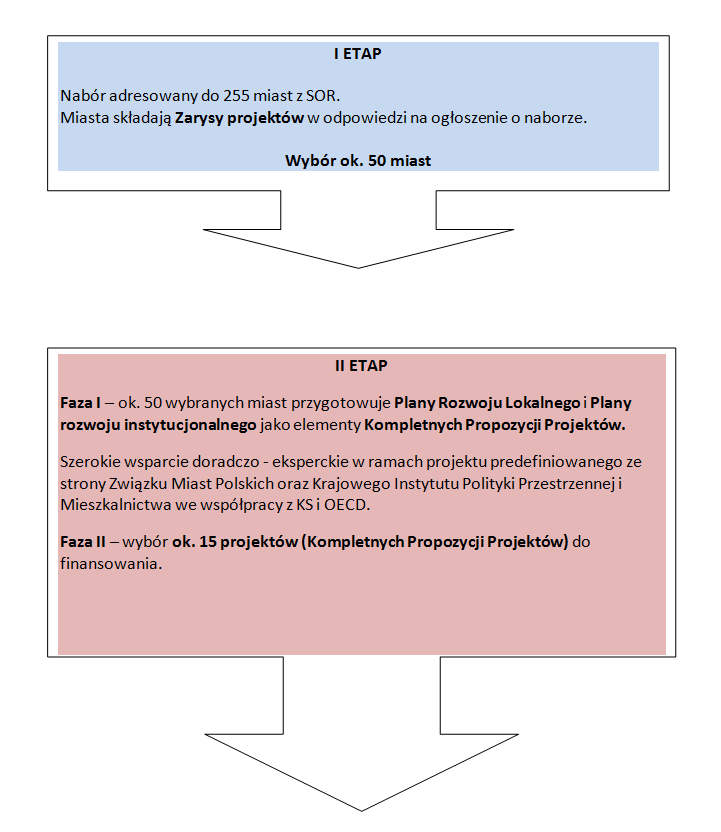
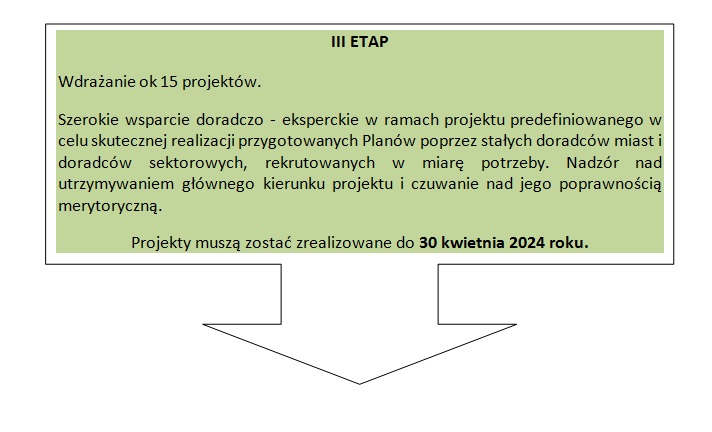
Opis grafiki:
- I ETAP - Nabór adresowany do 255 miast z SOR. Miasta składają Zarysy projektów w odpowiedzi na ogłoszenie o naborze. Wybór ok. 50 miast
- II ETAP
- Faza I – ok. 50 wybranych miast przygotowuje Plany Rozwoju Lokalnego i Plany rozwoju instytucjonalnego jako elementy Kompletnych Propozycji Projektów. Szerokie wsparcie doradczo-eksperckie w ramach projektu predefiniowanego ze strony Związku Miast Polskich oraz Krajowego Instytutu Polityki Przestrzennej i Mieszkalnictwa we współpracy z KS i OECD.
- Faza II – wybór ok. 15 projektów (Kompletnych Propozycji Projektów) do finansowania.
- III ETAP - Wdrażanie ok 15 projektów. Szerokie wsparcie doradczo-eksperckie w ramach projektu predefiniowanego w celu skutecznej realizacji przygotowanych Planów poprzez stałych doradców miast i doradców sektorowych, rekrutowanych w miarę potrzeby. Nadzór nad utrzymywaniem głównego kierunku projektu i czuwanie nad jego poprawnością merytoryczną. Projekty muszą zostać zrealizowane do 30 kwietnia 2024 roku.
[EN] Strengthening capacity of medium and small cities in Poland for implementing effective development policies
In 2019-2024 the Association of Polish Cities is implementing the largest advisory and training project in Poland, „Strengthening capacity of medium and small cities in Poland for implementing effective development policies”. The project is designed to help improve the situation of towns selected by the Polish Academy of Sciences as centres in the most difficult socio-economic situation in Poland.
The project is a pre-defined project whose role is to support the Ministry of Funds and Regional Policy, being the Programme Operator, in the implementation of the Local Development Programme grant component.
The Local Development Programme is addressed to small and medium sized towns selected by the Polish Academy of Sciences as centres in the most difficult socio-economic situation in Poland. It is a response to the most important challenges facing these towns, such as the implementation of accessibility standards or support for entrepreneurship and the local economy.
The towns taking part in the pre-defined project carried out by the Association of Polish Cities will not only have at their disposal funds (EUR 102 million), but will also be able to significantly improve their capacity for effective programming and implementation of local development policies. In this way they will be capable of making full use of the public intervention potential offered by the Ministry of Funds and Regional Policy .
The money for the development of Polish towns comes from Norwegian Funds and the EEA, i.e. a special pool of funds that Norway, Iceland and Liechtenstein have allocated to 15 countries of Central and Southern Europe and the Baltics.
The programme has a budget of EUR 117 million, of which EUR 102 million will be allocated for developmental projects for towns. The money for the development of Polish towns will be derived in 85% from Norwegian funds and EEA funds for 2014-2021 and in 15% from the state budget.
Partners:
The Association of Polish Cities (leader of the pre-defined project), the Norwegian Association of Local and Regional Authorities (KS), the Organisation for Economic Co-operation and Development (OECD) and the Institute of Urban and Regional Development (IRMiR).
Objectives:
The long-term objective of the Local Development Programme is to strengthen social and economic cohesion in small and medium sized towns in Poland:
through the creation of conditions for improving the quality of life as a result of local social and economic development, taking into account the civic participation dimension in managing towns and compliance with environmental protection principles, and
by strengthening institutional capacity of local-government authorities in these towns to adequately and effectively react to the changing and diverse needs of citizens.
Within such a spectrum of actions, the Association of Polish Cities, along with partners of the pre-defined project, is responsible for the following actions:
• Ensuring that 50 towns, to be selected through an open call by the Ministry of Funds and Regional Policy, obtain advisory support which will enable them to prepare high quality grant applications, and in broader terms will enable them to significantly improve their own capacity for effective programming and implementation of local development policies,
• Ensuring that 15 towns which will become beneficiaries of the grant competition receive regular advisory assistance to allow for efficient implementation of prepared development plans,
• Preparation and wide dissemination of an integrated local development model in the territorial dimension, with recommendations concerning institutional development – among other local governments in the country.
• Development of bilateral cooperation between Polish local governments and institutions, and their counterparts from the Donor States (EEA FM – Norway, Iceland, Liechtenstein)
Planned actions:
• A series of seminars for City Advisors in the 1st project phase, to prepare them for work with towns
• In the 2nd phase, active advisory support for towns preparing grant applications, with the use of the Local Development Monitor
• A series of foreign study visits in the Donor countries in all three project phases
• A tool for self-assessment of development of local government units, prepared by the Organisation for Economic Co-operation and Development (OECD)
• Preparation and implementation of Local Development Programmes and Institutional Development Plans by towns taking part in the grant component
• Urban geographical information system (U-GIS) as a tool for analysing and monitoring local development, taking into account diversity within towns – preparation and implementation
• Implementation of tool for assessment of the investment potential of real estate and raising real estate value in towns taking part in the grant component
• Establishment of effective partnerships between towns in Poland and towns in Norway
• Regular promotion among towns of knowledge on the methods and tools of integrated management of local development
• Review of Management Status in Local Government, prepared by OECD
Projekt współfinansowany w 85% ze środków Mechanizmu Finansowego Europejskiego Obszaru Gospodarczego 2014-2021, Norweskiego Mechanizmu Finansowego na lata 2014-2021 oraz w 15% z budżetu państwa.
Wspólnie działamy na rzecz Europy zielonej, konkurencyjnej i sprzyjającej integracji społecznej.
| Załącznik | Wielkość |
|---|---|
| 643.01 KB |
